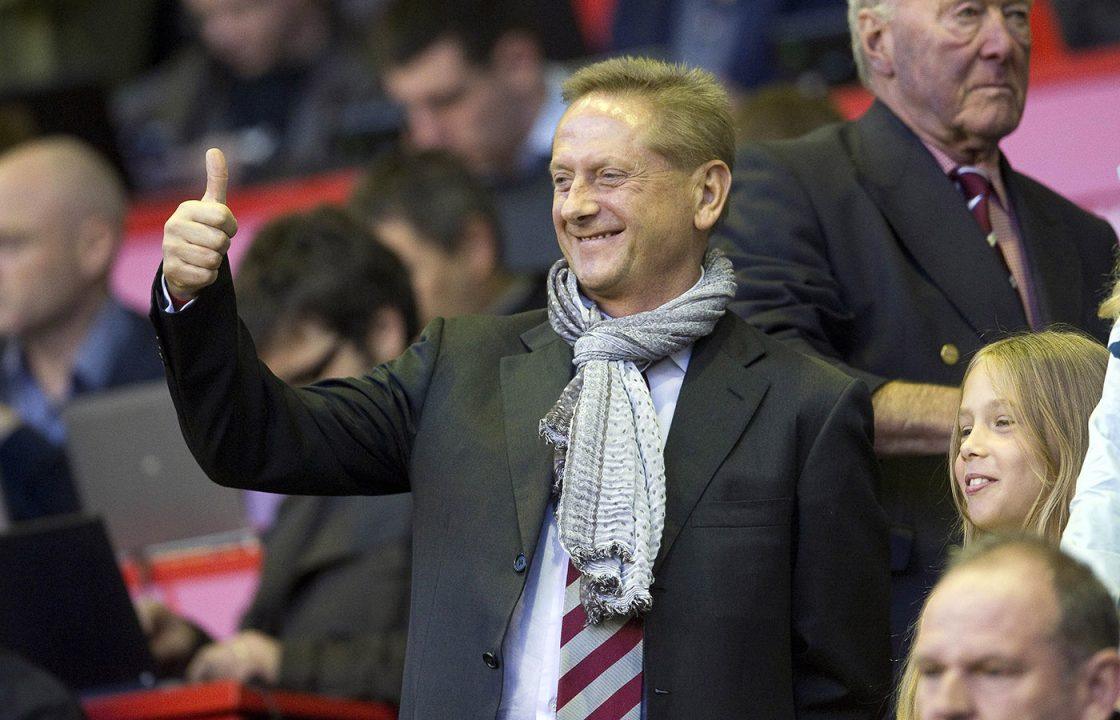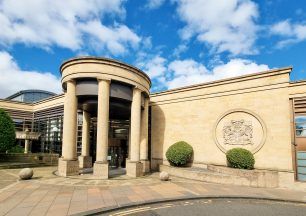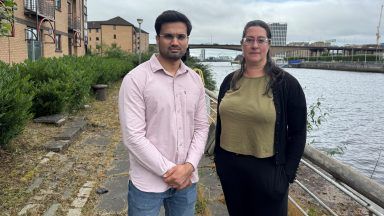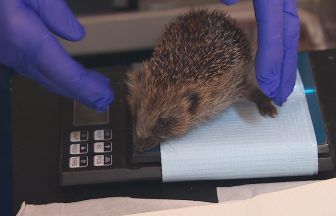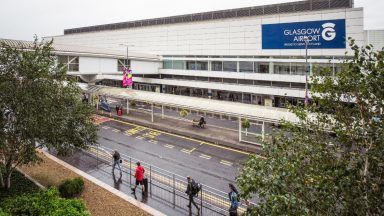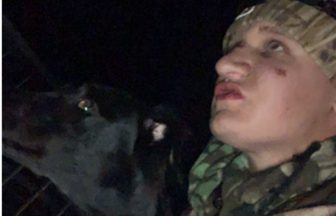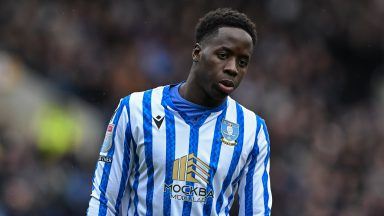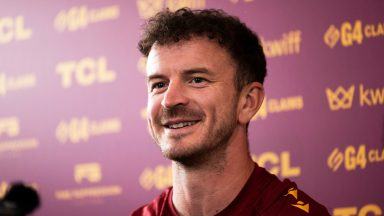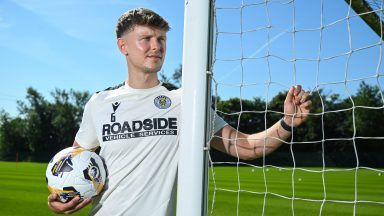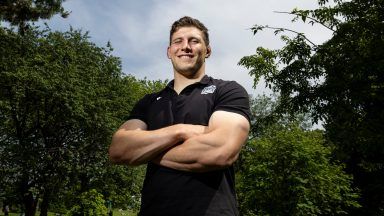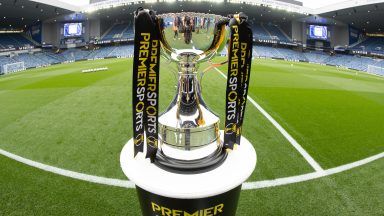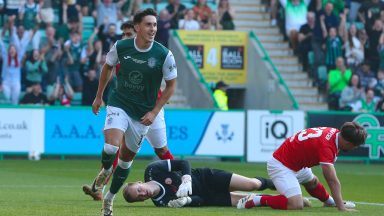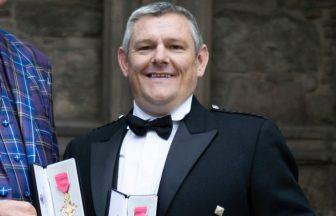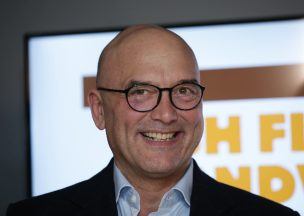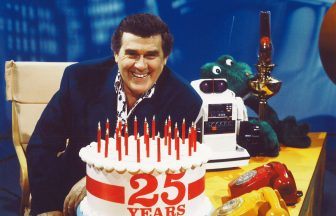For nearly nine years Vladimir Romanov took Heart of Midlothian on a big spending, headline-courting journey from silverware and European football, to insolvency and relegation.
The Russian-born businessman took control of Hearts in January 2005 after months of negotiations with then-owner Chris Robinson.
Hearts were facing the prospect of selling Tynecastle Park to deal with their large debt, a plan that sparked a fan revolt around Gorgie.
In the circumstances, Romanov – who owned a bank in Lithuania and had a purported wealth of £300m – was welcomed to the Edinburgh institution with open arms.
Under Romanov’s stewardships Hearts spent big on players, split Celtic and Rangers by finishing in second place, and claimed the Scottish Cup in 2006 and 2012. But the debt continued to grow.
Ukio Bankas collapsed after being declared insolvent in February 2013, and its investment arm UBIG – which held the shares in Hearts – saw its directors resign en-masse.
In an interview on Lithuanian television in May 2013, Romanov said he had “lost everything” and on June 19, with just £7,000 in the bank, wages unpaid and tax bills overdue, Hearts officially entered administration.
BDO were appointed administrators and with Bryan Jackson, who had previously worked at Motherwell, Dundee and Dunfermline Athletic among other football clubs facing closure, got down to work alongside colleague Trevor Birch.
Recalling the events, Jackson told STV: “It brings back nightmares really. Nobody knew the extent of it.
“There was £7,000 in the bank, 10,000 season tickets sold but all that money totally gone before the season had even started.
“It was the close season so there was no money coming and there was also outstanding wages to players and staff.
“What we inherited was more shocking than anything we could imagined. I went home and sat in a dark room and cried!”
“The only way I could keep the doors open was to sell 3,000 season tickets in two weeks. I even said I might not be able to honour them until the end of the season.
“We did get fantastic support, we sold 3,500 season tickets and managed to sell a player quite quickly so we generated a bit of cash.
“It was very tight and there were obviously brutal redundancies – sometimes people forget that because when you come out the other side there is obviously euphoria but people still lost their jobs and creditors still lost money.”
A group of Hearts supporters had already begun to formulate a plan to bring the club into fan ownership.
Calling themselves ‘The Foundation of Hearts’, they set about pulling together the expertise and the cash that would be required to save the 139-year-old football club.
The plan was for supporters to set up a monthly direct debit to form a fund that would first save the club and then allow it to flourish again on a sustainable footing.
Ian Murray, an Edinburgh MP, was brought in to chair the Foundation.
He said: “[Administration] was like a bereavement in the family.
“It was like this big dark cloud had come across Tynecastle and for Hearts fans the reality had set in that actually this club could shut down for good and disappear like Third Lanark.
“The good thing was how much it galvanised everyone – the fans, the board, the team all said this is time to come together and save the club. We weren’t willing to let it die.”
His squad stripped bare by the cutbacks, manager Gary Locke was working with teenagers and only a handful of experienced players. It was his duty to inform them that Hearts was in administration.
Ryan Stevenson, one of the few older heads in the dressing room, recalled receiving the phone call from Locke.
Stevenson told STV: “He just said ‘that’s it, we are officially in administration – I hate to do this to you but you’re going to have to take a 50% pay cut’.
“He said he wanted to keep me but I only had half an hour to decide.
“In a normal world you would take a bit of time to consider, go away and speak to your family, but my situation was completely different.
“I only came back because it was only after I left the first time that I realised just how important playing for Hearts was and how big an impact it had on my day-to-day life.
“I think I phoned Gary back within five minutes. I wanted to do whatever I could for the club – I think I owed it to the club and to the fans. I was 100% in.”
The 2013/14 season began with Hearts penalised 15 points, meaning avoiding relegation would be extremely difficult.
Off the park the fans continued to raise funds to keep the club afloat while the administrators worked to find a solution to paying the creditors and securing the shares from the ashes of Romanov’s business empire.
Stevenson said: “As I got older I understood that these fans were giving me a privilege to represent their club.
“There were young kids who were taking money out of their piggy banks, and it might only have been £10 or whatever it was, but to see these kids donating their money to keep Hearts alive was just an incredible thing.
“That transformed us because we felt that we were representing them on a Saturday.”
Meanwhile the Foundation of Hearts was being advised by Ann Budge, an Edinburgh IT millionaire.
Ian Murray remembered some difficult meetings as the group tried to build consensus around the way ahead.
He said: “I had never been in the board room before so I came in like a kid in a sweet shop to meet with representatives of the club, the Foundation of Hearts and other supporters groups to see if we could pull something together.
“It is probably the worst meeting I have ever had and it highlighted to me that the way forward was in trouble unless we could get everyone to work together.
“[Ann Budge] did what every successful businessperson does – she sits in a room and she doesn’t say anything until she has to.
“She absorbs, she listens and she comes to a decision on that basis. We learnt a lot from her.
“She said ‘if you want my money then you do it my way and we are going to have to find a way through that’ and thankfully she did because that was the boost we required.
“We now had the revenue from the commitment of the fans and now we had the cheque too.”
Over in Lithuania, Bryan Jackson was fighting to convince the creditors of UBIG to hand over the majority shareholding in Hearts.
He said: “I had nothing to offer, I had to get them for zero. I went with a begging bowl really, explaining how much the club meant to everybody but that I had no money to pay for the shares.
“I said if you don’t give them to me then you won’t get anything for them anyway, they are worthless; but this is what it means to us.
“When the word came to me that they’d agreed that was probably the biggest, most pivotal moment that I can remember.”
Securing the shares meant the final hurdle was to agree a deal with the creditors of Hearts.
Ann Budge agreed to put up £2.5m to fund a CVA with the Foundation of Hearts to pay her back over a period of years, at which point the fans would have full ownership of the club.
In May 2014 the CVA was agreed.
Ian Murray said: “There were so many obstacles and so many 11th hour problems we went to Ann Budge’s lawyers in Rutland Square at 8am on a Friday morning to try and sign the deal and it wasn’t until the ink from my signature and Ann’s signature had dried on the contracts and they had been faxed back to Lithuania that we knew it had been done.
“It is in steel and glass at Tynecastle, it is in us when we get off the plane in Florence and it is in us on a Saturday afternoon when we are watching Hearts score goals and win games.
“It is the supporters who did that. They should be very proud and they should tell their children and their grandchildren of what they did to make sure this club survives.
“This is my club and every supporter is the same regardless of who you support – you care passionately.
“It is like a family member, it is part of your heritage, your history and your life.
“To have saved the club is probably the best thing I will ever do.”
Hearts have built themselves back to the upper reaches of Scottish football and invested millions of pounds in infrastructure, including a new main stand at Tynecastle.
Jackson said: “When I turned the corner and saw that stand I was very emotional.
“Just seeing how the club had gone from strength-to-strength post-administration – to even build that in today’s economic climate was amazing.
“Seeing that brought more of a tear to my eye than anything.”
Many of the players who pulled on the maroon jersey during the administration season were moved on when the new regime took over.
Ryan Stevenson was among them but the emotional attachment to Hearts built-up during that period is untarnished.
He said: “To every single person who was involved at that time, every single day we gave it our all.
“And I do genuinely believe that is what has transformed the club into being back where it should be now.”
Follow STV News on WhatsApp
Scan the QR code on your mobile device for all the latest news from around the country


